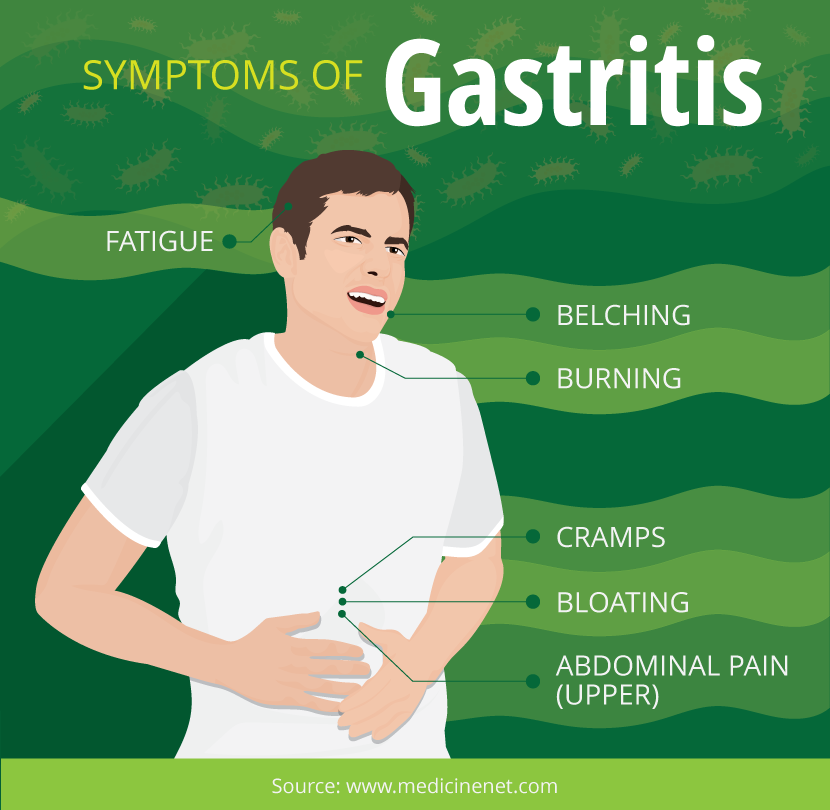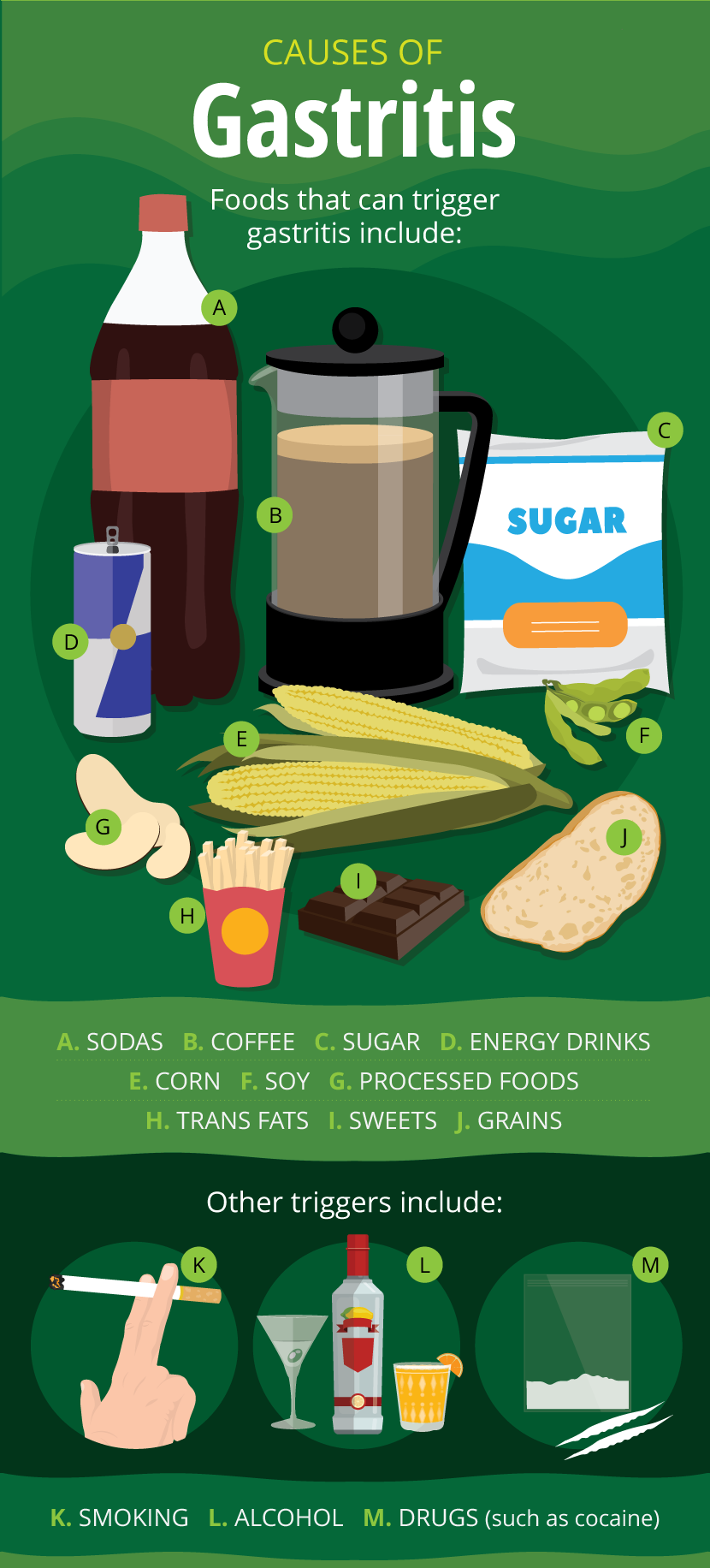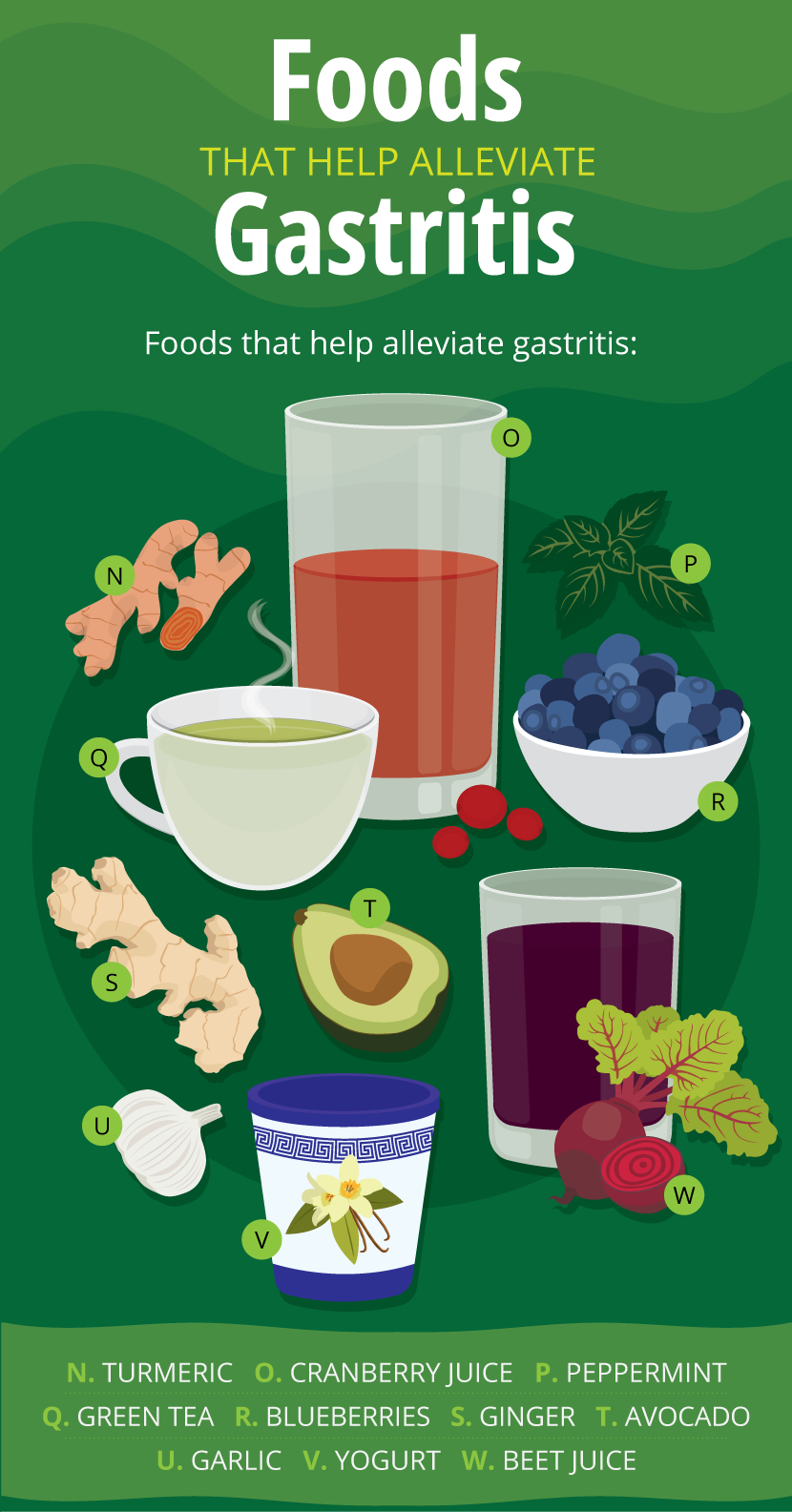Dealing With Gastritis:
Eating For Inflammation
You are at a work party enjoying yourself. Appetizers are served and champagne is being passed. With no warning you have to go to the bathroom.
Like, right now. Your stomach starts cramping and you instantly feel six months pregnant, which is odd considering you are a man.
You feel a little nauseated like you might vomit but you know you won’t because this series of symptoms has hit you many times before.
You try to ignore it hoping it will pass as it sometimes does. The fatigue and the gassy back-to-back “burpscapade” begins,
and you know your night is done. You excuse yourself, grab your keys, and head home to rest.
An upset tummy is a nuisance, but chronic, ongoing stomach distress can deeply affect one’s quality of life.
Gastritis, or inflammation of the stomach lining, has become increasingly common.http://www.medicinenet.com/gastritis/article.htm
There are typically two causes of gastritis: overuse of nonsteroidal anti-inflammatories (NSAIDS) like ibuprofen, and infection by the bacterial species Helicobacter Pylori.
This bacteria is present in almost 50 percent of the countries of the world. In some people,
this little bug can attack and break down the stomach lining, resulting in gastritis and potentially leading to stomach ulcers.http://universityhealthnews.com/daily/digestive-health/gastritis-diet-healing-the-inside-from-the-outside/
But these two culprits aren’t always responsible for the gastritis suffered by many.
We must consider that there may be other etiologies of chronic gut pain and discomfort.
Let’s look at what is actually happening in the stomach. The stomach lining is programmed to produce stomach acid and the enzyme pepsin to break down our food.
When the integrity of that lining is somehow compromised, acid and pepsin are no longer produced in adequate quantities.
Injury to the stomach lining also results in the formation of less mucus on the surface of the lining to protect it.https://www.niddk.nih.gov/health-information/health-topics/digestive-diseases/gastritis/Pages/facts.aspx
This means that even though less acid and enzymes are being released,
there is at the same time less protection (mucus) to prevent irritation of the stomach lining. Hello gastritis and abrupt party departure.
Once the stomach lining is irritated, many symptoms can result.
Many people experience cramping, pain, bloating, and gas.
Less common but not any less significant are things like vomiting, fatigue, nausea, and a feeling of heaviness.
These symptoms can become regular and often increase in frequency.http://www.mayoclinic.org/diseases-conditions/gastritis/basics/definition/con-20021032

Other than this pesky bacteria and copious amounts of nonsteroidal anti-inflammatory drugs, what can cause this disruption of biochemical
functions within the stomach? To start with, food. Certain foods can create a
less than desirable environment in the stomach, such as soy, corn, highly processed foods (like sweets or sodas),
coffee, energy drinks, and trans fats (1). These foods do not promote the optimal
environment inside the gut, and over time can create severe irritation in stomach tissue.
We also must consider what are normally considered to be non-irritating foods that may transition into becoming annoyances.
Wheat, eggs, and other dairy products might become causative agents of gastritis if the host,
maybe our poor party-goer above, has developed an allergy or sensitivity to these normally benign foods.https://draxe.com/gastritis-diet/

External things besides food can cause gastritis, including smoking, excessive alcohol or cocaine use,
obesity, autoimmune disorders, radiation, reflux, and chronic stress (emotional or physical).
These things originating outside the body can dramatically alter PH balances
within the stomach that are key for maintaining proper enzyme, acid, and mucosal levels.https://www.niddk.nih.gov/health-information/health-topics/digestive-diseases/gastritis/Pages/facts.aspx
There is good news, though. Just as there are foods that can foster the sad state of gastritis, there are foods that can heal and regenerate a proper balance within the stomach.
Any antioxidant-rich food with an alkaline PH is excellent but specifically ginger, beet juice, turmeric,
oregano, cranberry juice, green tea, blueberries, avocado, peppermint, leafy vegetables, and yogurt are good suggestions for healing gastritis.

Gastritis is an often chronic disorder, and can be complicated to treat. A multifaceted approach is best when working to calm the lining of the stomach.
The foods mentioned above are an excellent start. You can also consider a few additional interventions.
Taking chewable enzymes like papaya or Bromelin capsules can soothe the stomach and top up the reduced quantity of your own stomach enzymes.
Taking a supplemental probiotic can also be helpful. Although probiotics largely work in the small intestine,
the healthier the rest of your alimentary canal, the more effectively and efficiently your stomach can heal.
Meditation and other relaxation techniques can be very productive in calming your internal physiology.
Because gastritis is often caused, at least in part, by stress, effort to reduce that stress will gear you up for success.
Identifying potential food allergens is also fundamental to combatting this tricky disorder.
Gastritis is a painful, uncomfortable, and potentially dangerous condition.
If left untreated, things can get complicated – it is important to know that gastritis can lead to peptic ulcers or even cancer.
Addressing both internal and external causative agents is essential for a full recovery.
Embed the article on your site

